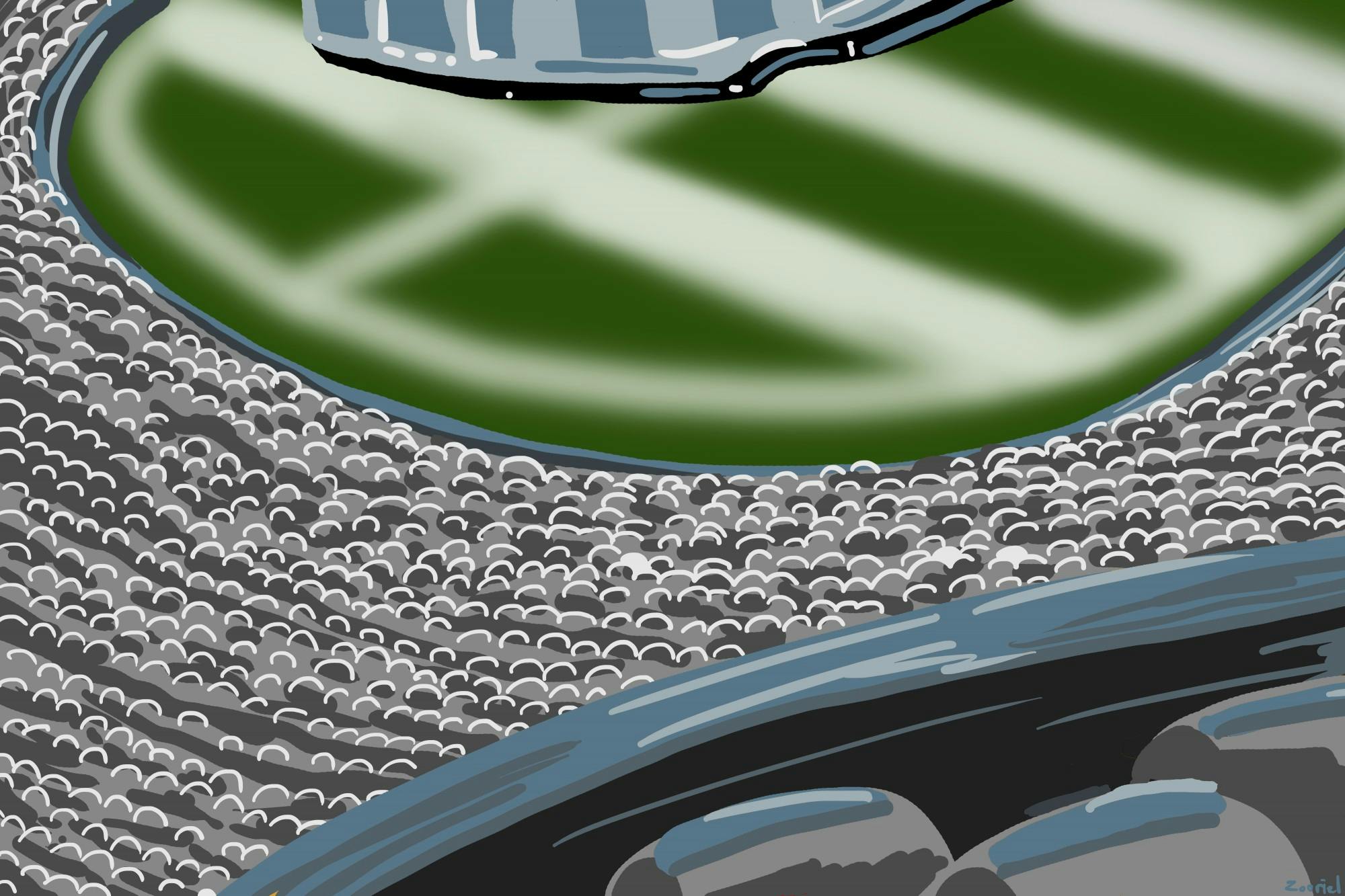Eight years ago, former Miami Marlins player Aaron Seene filed a lawsuit against Major League Baseball to support better working conditions on behalf of all minor league players. Among other factors, the complaint emerged from the major salary discrepancy between the MLB and its minor league affiliates. According to Front Office Sports, as of 2022, MLB Players make an annual average of $4.41 million, while the average salary of a minor leaguer paid can be anywhere from $4,800 to $14,700.
Last Friday, Seene’s call to justice was answered in the form of a settlement that will immediately pay out $185 million to a class of approximately 23,000 players, pending approval from a judge. The settlement, filed in the U.S. District Court of the Northern District of California, is just the next step in the reorganization of the minor leagues after their takeover by MLB about two years ago.
Previously, the minor leagues were run under the Professional Baseball Agreement, a framework that controlled all interaction between the MLB and the minor leagues. In 2020, all minor league issues, including working conditions of minor league players, became the complete jurisdiction of the MLB. The next year, Major League Baseball altered the structure of the minor leagues, offering 120 affiliates 10-year licenses and dropping 40 teams in the process, a reduction pivotal in improving the wages of minor league players.
Although the immediate payout will only be roughly $5,000 to $5,500 for each of the players in the class, according to the New York Times, minor leaguers and advocates agree that this settlement is a step in the right direction. Under the agreement, the “MLB must formally notify all clubs that they can no longer prohibit teams from paying players [including minor league players] during spring training, extended spring training or any work period that is not during the championship season, which includes the regular season and playoffs.”
The settlement comes as a major victory for many minor league players who have previously been denied their complaints to better healthcare, housing and payment. Most of all, the settlement has the potential to eliminate clubhouse dues, which are paid by the player out of pocket to help fund their teams’ facilities and staff member wages. This action would also help a number of minor league players move above the federal minimum wage.
“I definitely know of some players who have spent nights in their car where the dates didn’t line up with their road trip and Airbnbs,” a Pirates’ minor leaguer said.
Many players who expressed concern with their working conditions or supported Seene did so anonymously, as they feared their teams might ostracize the players who filed public complaints.
Although the MLB has supplied $450 million dollars to signing bonuses, meals and college tuition assistance in the last year, advocates for the minor league do not plan on stopping until respectable conditions for minor leaguers are reached. On Friday, the Advocates for Minor Leaguers stated that they “will not be satisfied until Minor Leaguers have a seat at the table to negotiate fair wages and working conditions, as is the norm across professional sports.”
Many people may disagree that the minor leagues are a valuable profession, as only about 10% of minor league players reach the MLB, according to the blog Chasing the Dream. However, as professionals and stimulators of the American economy, don’t they have a right to be paid adequately in order to support themselves and their loved ones?
The minor leagues play a significant role in the development of professional baseball players, as nearly all start their career in the minors, based on findings by Pro Baseball Insider. Moreover, not only do the minors act as a ladder to advance the best of the best, but when players are struggling in the major leagues, the minor league can also serve as a pathway to regain confidence and return to the level of the MLB. Finally, minor league teams can provide small town communities with a professional sports team to rally behind — and the teams truly care for their devotional fans.
One of the most famous minor league teams today, the Georgia-based Savannah Bananas (similar to the Harlem Globetrotters in basketball), have made a profound impact across the globe. Their trick-oriented style of playing, complete with choreographed dances and ornate costumes and even the occasional pair of stilts, has earned them an especially loveable reputation — and the players love putting on a show for fans. Although not all teams resemble the Savannah Bananas, each team provides an immeasurable source of entertainment to the towns they call home, and supplying these teams with better working conditions would allow for this mutually beneficial relationship to continue for years to come.
As the MLB continues to make provisions for minor league players over the next few years, fans of American baseball must recall the importance of the minor leagues and the players that continue to contribute to the major league system. Without the minor leagues, the MLB would not be the same. We should treat our minor leaguers accordingly, with the respect and the compensation they deserve.




